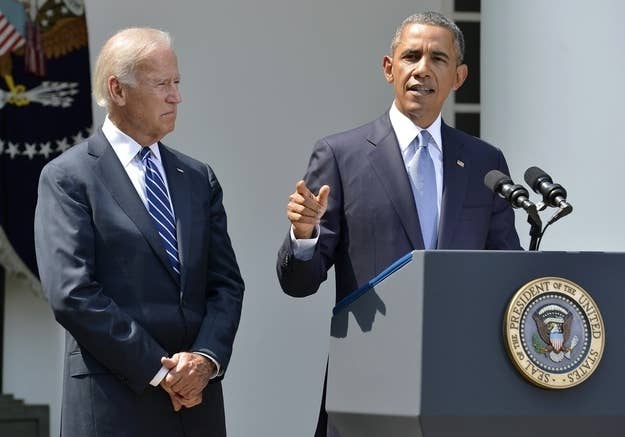
WASHINGTON — President Obama appears confident Congress will join him in calling for U.S. military attacks on Syria — but top officials in his administration won't say what happens if Congress doesn't authorize him to go to war.
Senior administration officials told reporters at a White House briefing Saturday that the administration will not even discuss the possibility that Congress doesn't endorse Obama's Syria plans, so confident is the administration that Congress will go along. That leaves a big question on the table after Obama's surprising Rose Garden announcement: What happens if Congress votes no?
The officials pointed to this line in Obama's remarks to make clear that the administration does not believe it's giving up what it sees as legal authority to attack Syria without Congress.
While I believe I have the authority to take military action without specific Congressional authorization, I know that the country will be stronger if we take this course and our actions will be even more effective. We should have this debate because the issues are too big for business as usual.
Decades of policy require the United States to respond to the use of chemical weapons, Obama said, and senior administration officials made it clear that they expect Congress to back them. But they also said Obama wasn't giving the legal power to authorize the Syria attacks back to Congress, leaving open at least the possibility that Obama could strike after the Congress decides not to authorize strikes.
The senior administration officials' comments came in a briefing in which participants agreed not to name the speakers or quote them directly.
In the view of the White House, the officials said, a Congressional vote against strikes in Syria would be an embarrassment to both Congress and the country. Interestingly, the officials said it was British Prime Minister David Cameron's public humiliation at the hands of the House of Commons last week that helped Obama make the decision to seek Congressional approval. Obam mentioned the British debate in his remarks Saturday.
"Many people have advised against taking this decision to Congress, and undoubtedly, they were impacted by what we saw happen in the United Kingdom this week when the Parliament of our closest ally failed to pass a resolution with a similar goal, even as the Prime Minister supported taking action," Obama said. "Yet, while I believe I have the authority to carry out this military action without specific congressional authorization, I know that the country will be stronger if we take this course, and our actions will be even more effective."
The president's decision to seek Congressional approval came Friday night, officials said, and was not prompted by any request from Congressional leaders. In the United Kingdom, after the the parliament voted against Cameron's call for strikes in Syria, the British leader abandoned the idea. It's not clear that Obama would do the same thing, and administration officials said Saturday that, legally, he doesn't have to.
But while the legal logic of that may be in debate, it's difficult to see the political path to bombing Syria after a congressional rebuff.
